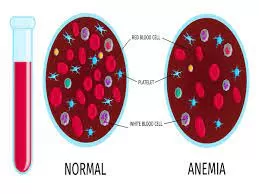New Delhi, December 21 – Autism Spectrum Disorder (ASD) poses a significant health burden in India, according to a study published in The Lancet Psychiatry journal. The research, part of the Global Burden of Diseases, Injuries, and Risk Factors Study (GBD) 2021, highlights the pressing need for improved diagnostic tools, early detection, and targeted interventions.
ASD, a neurological and developmental disorder, profoundly impacts social interactions, communication, and behavior. The study ranked autism among the top 10 causes of non-fatal health burdens in individuals under 20 years old in India.
In 2021, India recorded 708.1 ASD cases per 100,000 people, with a notable gender disparity: 483.7 cases per 100,000 females and 921.4 per 100,000 males. Additionally, approximately 140 per 100,000 people experienced poor health and disability due to ASD, reflecting the profound challenges faced by affected individuals and their families.
Global Perspective
Globally, ASD affected an estimated 61.8 million people in 2021, equating to one in every 127 individuals. The prevalence among males (1,065 cases per 100,000) was nearly double that of females (508 per 100,000).
The highest prevalence was reported in high-income Asia Pacific countries, such as Japan, with 1,560 cases per 100,000 people. In contrast, regions like Tropical Latin America and Bangladesh reported the lowest rates of ASD.
Call for Urgent Action
The study emphasizes the critical need for early detection and sustained support for autistic individuals, especially in low- and middle-income countries like India, where access to care is limited.
“The findings underscore the urgent need for early detection and sustained support for autistic individuals and their caregivers worldwide,” the researchers noted. They urged prioritizing resources for early diagnosis and the development of tools tailored for adults and underserved populations.
The team also highlighted the importance of addressing comorbidities, including heightened mortality risks and mental health challenges, such as suicide among individuals with ASD. Improving geographic data coverage and fostering targeted interventions are vital to reducing the health burden of autism.
Way Forward
The study underscores the pressing need for policymakers and healthcare providers in India to strengthen diagnostic and therapeutic services for ASD. Tailored support systems for caregivers and services that address the evolving needs of autistic individuals throughout their lifespan are essential for improving quality of life and reducing the health burden associated with ASD.
As autism continues to affect millions globally, addressing these challenges remains a priority for healthcare systems worldwide.












